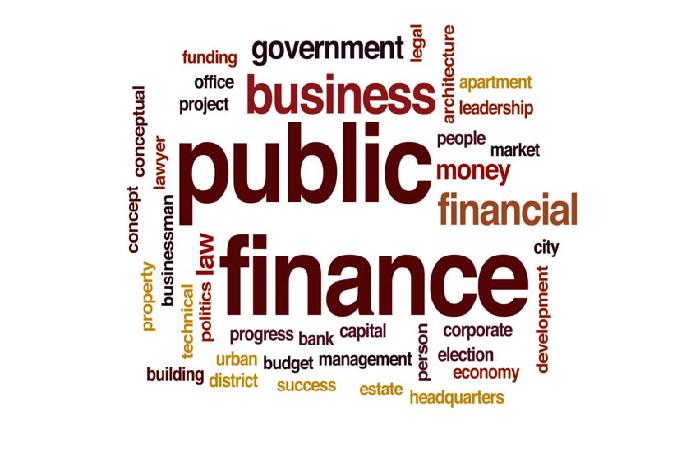 Public Finance Write for us: Finance broadly describes the study and system of money, investments, and other financial instruments. The country’s revenue comes from the collection of various returns on investments, and taxes, among other revenue streams.
Public Finance Write for us: Finance broadly describes the study and system of money, investments, and other financial instruments. The country’s revenue comes from the collection of various returns on investments, and taxes, among other revenue streams.
Government expenditures include healthcare and medical facilities, salaries for government employees, technological developments, etc. The public plays an important role in contributing to the growth and development of a country; hence the term public finance.
Public finance is the management of revenue and expenditure at all stages where a country’s public is involved. Public finance takes place at the state and central levels. Furthermore, the management of public finances plays a significant role in developing the country’s economy since it depends on the effective utilization of finances.
Thus, public finance is an approach to managing the public funds of a country influencing all stakeholders of the economy.
What Is Finance?
Finance is a term for matters about the management, creation, and study of cash and investments. It involves using credit and debt, refuges, and savings to finance current plans using future income flows. Because of this temporal aspect, finance is closely linked to the time value of money, notice rates, and other related topics.
Finance can be approximately divided into three categories:
- Public Finance
- Corporate Finance
- Personal Finance
Many other specific categories, such as behavioral finance, seek to identify the cognitive reasons behind financial decisions.
Types of Public Finance
Public Money
The federal government helps stop market failure by overseeing the distribution of incomes, the distribution of income, and the stabilization of the economy. Regular funding for these programs is secured mainly through taxation.18 Borrowing from banks, insurance companies, and other governments and earning extras from its businesses also help finance the central government.
State and local governments also receive grants and aid from the federal management. Other sources of public finance include user cares from ports, airport services, and other services; fines resulting from breaking laws; incomes from certificates and fees, such as for driving; and sales of rule securities and bond issues.
Corporate Money
Businesses obtain financing through various means, ranging from equity investments to credit provisions. A firm might take out a loan from a bank or place for a line of credit. Obtaining and managing debt properly can help a company expand and become more profitable.
Start-ups may receive capital from angel nominees or venture capitalists in the argument for a percentage of ownership. If a company prospers and goes public, it will issue bonds on a stock exchange; such early general aids (IPO) bring a significant influx of cash into a firm. Established companies may sell additional shares or issue corporate bonds to raise money.
Evolution and Provision of Public Finance System
Personal financial planning generally involves studying an individual’s or a family’s current economic position, predicting short-term and long-term needs, and performing a plan to fulfill those needs within individual financial constraints. Personal finance depends primarily on earnings, living requirements, and individual goals and desires.
Matters of personal Finance include but are not limited to securing financial products like credit cards; life and home insurance; mortgages; and retirement products. Private banking (such as checking and savings accounts, individual departure accounts (IRAs), and 401(k) plans) is also careful a part.
Social Finance
Social finance typically refers to savings made in social creativities, including charitable organizations and some collectives. Slightly than an outright donation, these savings take the form of equity or debt backing, in which the investor pursues a monetary prize and a social gain.
Modern forms of social finance also include some parts of microfinance, exact loans to small business owners and industrialists in less developed countries to enable their creativity to grow. Investors earn a return on their loans while helping improve individuals’ standard of living and benefit the local society cheaply.
How to Submit Your Articles
To Write to Us, you can email us at contact@thewhoblog.com
Why Write for The Who Blog – Public Finance Write for Us
 Search Related Terms to Public Finance Write for Us
Search Related Terms to Public Finance Write for Us
- public finance
- what is public finance
- public finance management
- women in public finance
- public finance investment banking
- jobs in public finance
- public finance job
- public finance jobs
- public finance authority
- public finance law
- Texas public finance authority
- which issues will likely continue to dominate general Finance in Texas over the next biennium?
- public finance lawyers
- public finance and public policy
- public finance lawyer
- definition of public finance
- stifle public finance
- public finance definition
- certified public finance officer
- define public finance
What We Look for
- It is a relevant, well-researched post (preferably 1000+ words) with actionable tips.
- It is 100% original and unpublished. We will not republish anything that publishes elsewhere.
- Only includes claims backed by links to credible research or case studies. Avoid citing our competitors and using any irrelevant promotional links to websites.
- Includes examples and relevant images to illustrate your point. Avoid using stock photos that don’t add any value to the copy. Use Create to picture data, information, processes, ideas, and frameworks.
- Includes subheadings, bullet points, and shorter paragraphs, making the article more explicit.
Topics We Cover
- Visual collaboration
- Visual project management
- Business and technical diagramming
- Visual problem-solving
- Visual creativity and communication
- Data imagining
- Design thinking
Guidelines of the Article to The Who Blog – Public Finance Write for Us
 You can send your article to contact@thewhoblog.com
You can send your article to contact@thewhoblog.com
